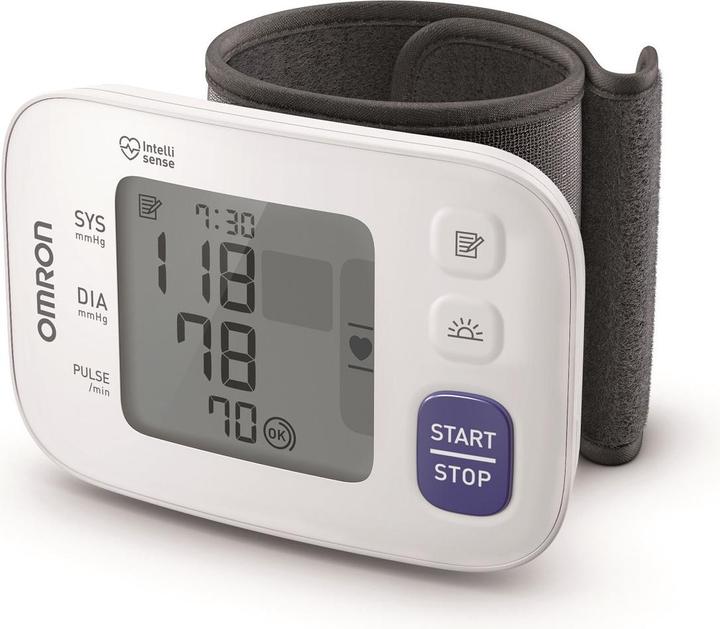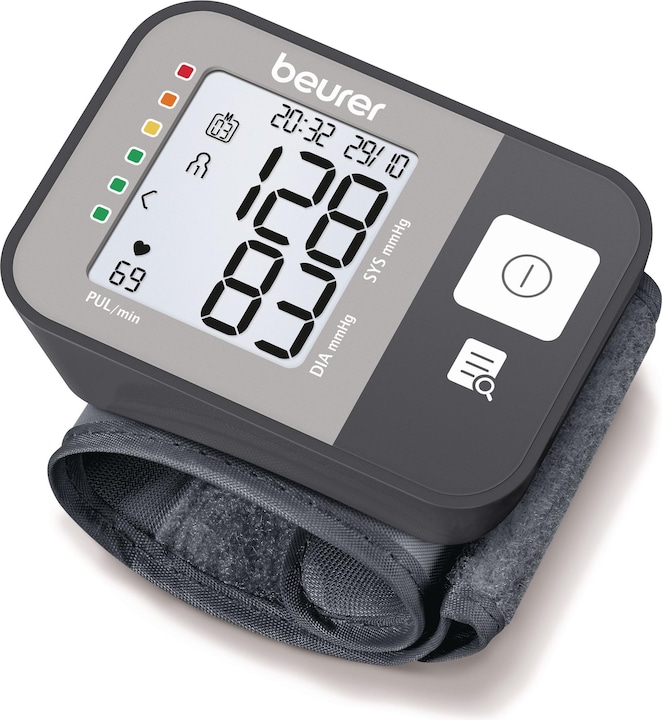

How arm position can affect your blood pressure reading
When measuring blood pressure, using the correct technique is crucial for obtaining reliable results. Read on to find out how to avoid common mistakes and what to look out for when buying a blood pressure monitor.
The three most common arm positions when measuring blood pressure are hanging by your side, resting on your lap or supported at chest height. However, only one of them produces correct measurements, according to a study from Johns Hopkins University. The other two can result in blood pressure readings that are too high – so much higher, in fact, that they may lead to misdiagnosis and incorrect medication.
How to do it right: supported and at heart level
What’s recommended is to place the arm on a surface and attach the cuff at about heart level. However, these instructions aren’t always followed. Common mistakes include resting the arm on the thigh, for example, which means the measuring point is below the heart. With wrist measuring devices in particular, this leads to incorrect, elevated readings.
What’s measured and what’s healthy
Blood pressure’s always indicated with two values. The first or upper value describes the so-called systolic blood pressure, i.e. the blood pressure in the tension phase (systole), when the blood is pumped from the heart into the blood vessels. The second value is the diastolic blood pressure, i.e. the pressure in the relaxation phase of the heart (diastole).
According to the European Society of Cardiology, optimal blood pressure is below 120/80 mmHg, normal blood pressure is up to 129/84 mmHg and high normal is 130/85 to 139/89 mmHg. Anything above this is considered high blood pressure (hypertension).
The above-mentioned study showed that both the measurements taken with the arm hanging down and resting on the thigh resulted in increased values. In the first case, the measured values are on average almost 7 mmHg higher than in reality for the systolic pressure and 4 mmHg for the diastolic pressure. If the arm’s resting on the lap below heart level, the deviations are slightly lower at 4 mmHg for both values. But that could be enough to falsely diagnose high blood pressure.
Keep calm and repeat measurements
If you’re measuring your blood pressure yourself, always make sure to rest your arm on a surface such as a table. And always take several measurements and use the average for a reliable result.
By measuring at home, you also avoid the risk of results being higher than they should. How so? Because most people are nervous when they visit go to the doctor’s, meaning the measurements taken by medical staff are slightly higher on average than those taken at home.
What to look out for when buying a blood pressure monitor
Measurement accuracy: It’s crucial that the device delivers reliable and precise measurements. Consumer magazine Stiftung Warentest (link in German) tested blood pressure monitors and offers a good indication of how accurate they are.
These devices got the best ratings:
Monitor type: You can choose between upper arm and wrist devices. Wrist devices are often cheaper, easier to put on and less bulky. Upper arm devices have the advantage that the cuff automatically sits at about heart level.
User-friendliness: Make sure the device is simple to use and offers an easy-to-read display.
Saving function: If you want to monitor the development of your blood pressure, check that it allows you to save several measurements.
Additional functions: Some devices offer useful extras such as pulse measurement or arrhythmia detection.
Science editor and biologist. I love animals and am fascinated by plants, their abilities and everything you can do with them. That's why my favourite place is always outside - somewhere in nature, preferably in my wild garden.








